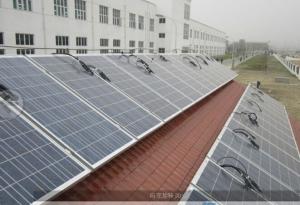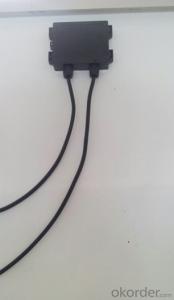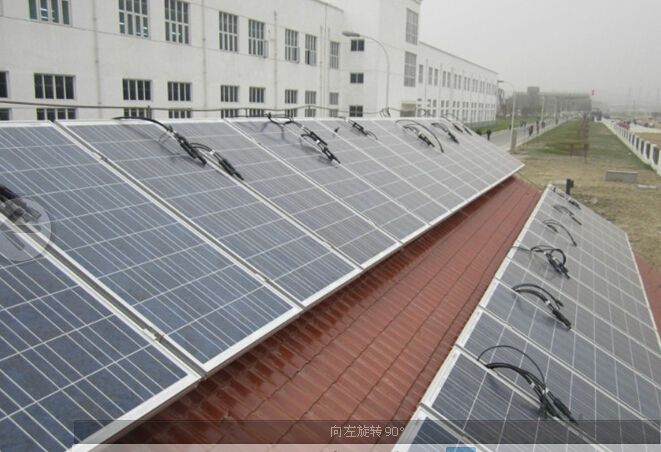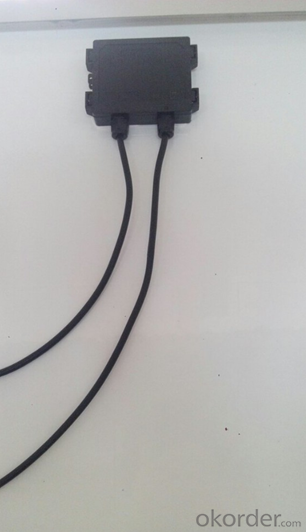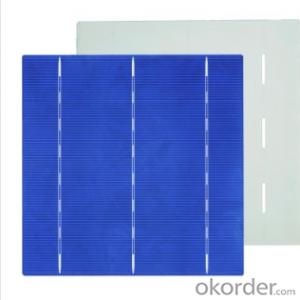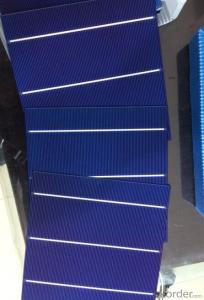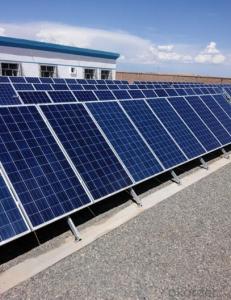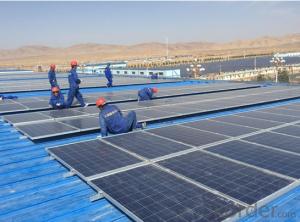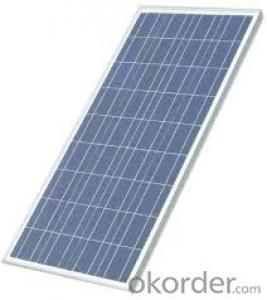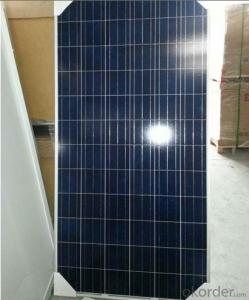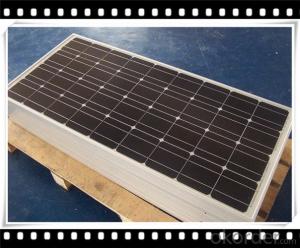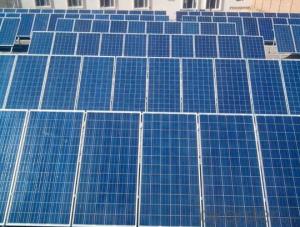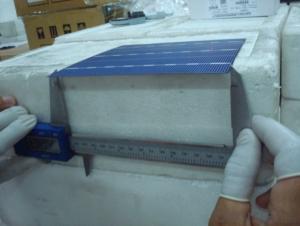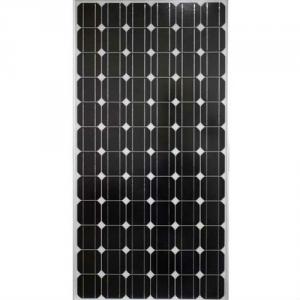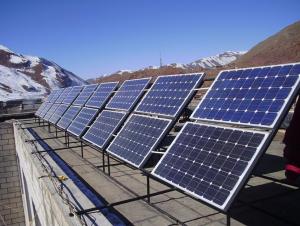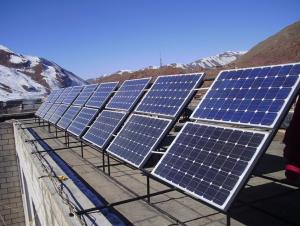High Power Solar Cells - Factor Directly Sale 285W Poly Silicon Solar Module CNBM
- Loading Port:
- Qingdao
- Payment Terms:
- TT OR LC
- Min Order Qty:
- 10 set
- Supply Capability:
- 300000 set/month
OKorder Service Pledge
OKorder Financial Service
You Might Also Like
Quick Details
| Place of Origin: | China (Mainland) | Brand Name: | CNBM | Model Number: | 285W solar module |
| Material: | Polycrystalline Silicon | Size: | 1956*992*50mm | Number of Cells: | 72 |
| Max. Power: | 285W | Cell Size(mm): | 156*156 | Tolerance: | 0~3% |
| Cells Number(pcs): | 6*12 | Weight(Kg): | 25 | Max.Series Fuse Rating (A): | 15 |
| Max.System Voltage-IEC(V): | 1000 |
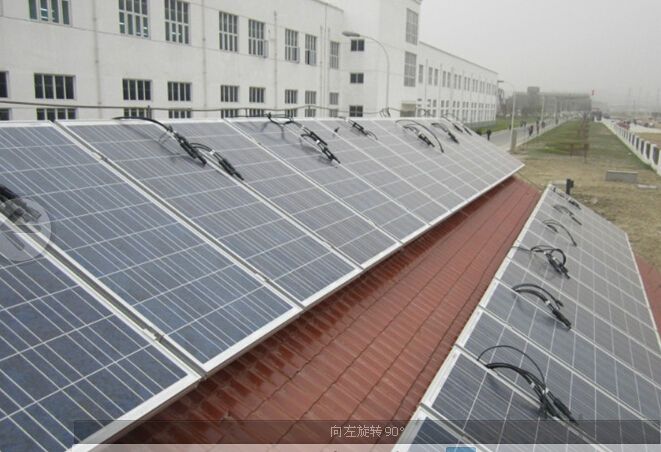
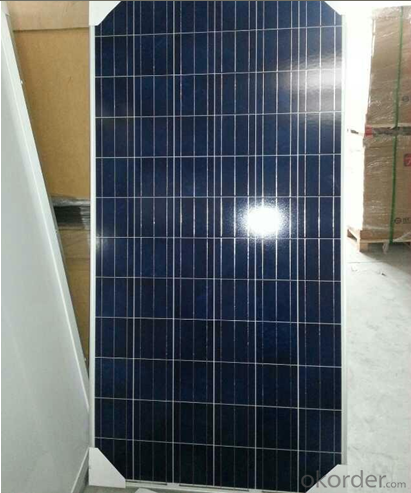
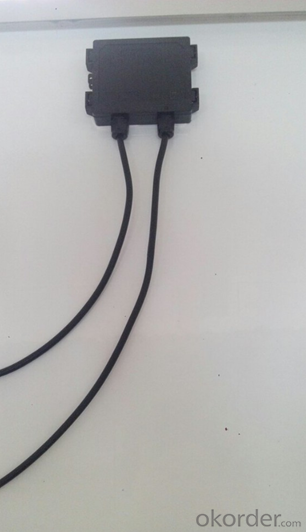
Polycrystalline Solar Module
XH250P(72)/ XH275P(72)/ XH300P(72)
Models | XH250P(72) | XH285P(72) | XH300P(72) |
Max. Power (Pmax) | 250Wp | 285Wp | 300Wp |
Optimum Operating Voltage (Vm) | 34.8V | 35.7V | 35.9V |
Optimum Operating Current (Im) | 7.18A | 7.77 A | 8.08A |
Open-circuit Voltage (Voc) | 43.8V | 35.4 V | 44.4V |
Short-circuit Current (Isc) | 8.04A | 8.24 A | 8.62A |
Cells efficiency | 14.6% | 15.8% | 16.8% |
Dimension L×W×H (mm) | 1956×992×50mm | 1956×992×50 | 1956×992×50 |
Power Tolerance (Pmax) | 0 ~ +3% | 0 ~ +3% | 0 ~ +3% |
Numbers of cells | 60pcs poly solar cell 156×156mm | 72pcs poly solar cell 156×156mm | 72pcs poly solar cell 156×156mm |
weight | 25kg | 25kg | 25kg |
Max system voltage | 1000V DC | 1000V DC | 1000V DC |
Temperature cycling range | -40℃ ~ +85℃ | -40℃ ~ +85℃ | -40℃ ~ +85℃ |
- Q: How do people price solar cells? Is it based on a specific way of calculating the cost of solar cells?
- According to our calculation the solar power cost around US$230 per square meter is it can generate 120W power supply per square meter.
- Q: Can solar cells be used in sports stadiums?
- Yes, solar cells can be used in sports stadiums. They can be installed on the roof or integrated into the design of the stadium to capture solar energy and convert it into electricity. This renewable energy source can help power lighting, scoreboards, and other electrical systems, making sports stadiums more sustainable and reducing their carbon footprint.
- Q: Monocrystalline silicon and polycrystalline silicon cell in the appearance of what is the difference?
- There is a part of the area filled with dissatisfaction, and polysilicon solar cells are square, there is no such problem, so the efficiency of the solar cell components is almost the same. In addition, due to the two solar cell materials manufacturing process is not the same, polysilicon solar cell manufacturing process consumption of energy than monocrystalline silicon solar cells about 30%, so polysilicon solar cells
- Q: Can solar cells be used for large-scale power generation?
- Yes, solar cells can be used for large-scale power generation. Advances in technology and economies of scale have made solar power increasingly cost-effective and efficient. Large solar arrays, known as solar farms, are capable of generating significant amounts of electricity to meet the energy demands of cities and even entire regions. Additionally, solar power is a clean and renewable energy source, making it an attractive option for reducing greenhouse gas emissions and mitigating climate change.
- Q: How do solar cells perform in areas with high humidity and saltwater exposure?
- Solar cells generally perform well in areas with high humidity and saltwater exposure. However, prolonged exposure to high humidity and saltwater can potentially degrade the performance and lifespan of solar cells. The humidity can cause moisture to accumulate on the surface of the solar panels, leading to reduced efficiency. Additionally, saltwater exposure can corrode the metal components of the solar cells, further impacting their performance. To mitigate these issues, manufacturers often use corrosion-resistant materials and coatings for solar panels deployed in coastal regions or areas with high humidity. Regular maintenance and cleaning can also help ensure optimal performance in such environments.
- Q: Can solar cells be used in disaster relief efforts?
- Yes, solar cells can be used in disaster relief efforts. Solar cells can provide a reliable source of clean and renewable energy, which is crucial during times of disaster when traditional power sources may be disrupted. Solar cells can power essential equipment and devices such as lighting, communication systems, medical equipment, and water purification systems, enabling relief workers to effectively respond to the needs of affected communities. Additionally, solar cells can be easily deployed and are not dependent on fuel supply or infrastructure, making them ideal for disaster-prone areas or remote locations.
- Q: Can solar cells be used to power remote oil and gas monitoring systems?
- Yes, solar cells can be used to power remote oil and gas monitoring systems. Solar panels can convert sunlight into electricity, providing a reliable and sustainable energy source for these monitoring systems, especially in remote areas where access to traditional power grids may be limited or non-existent.
- Q: Can solar cells be used in power plants?
- Yes, solar cells can be used in power plants. Solar power plants, also known as solar farms or solar parks, use large arrays of solar panels or solar cells to convert sunlight into electricity on a larger scale. These power plants capture and harness solar energy to generate electricity, making them a sustainable and renewable energy source.
- Q: How do solar cells perform in different geographic locations?
- Solar cells perform differently in different geographic locations due to variations in sunlight intensity and weather conditions. Locations closer to the equator typically receive more direct sunlight and have higher solar cell performance, while locations farther from the equator or with frequent cloud cover may have lower performance. Factors such as temperature, humidity, and air pollution can also affect the efficiency and lifespan of solar cells. Overall, solar cells can still generate electricity in various geographic locations, but the amount of energy produced may vary.
- Q: Can solar cells be used for powering satellites?
- Yes, solar cells can be used for powering satellites. In fact, they are the primary source of power for most satellites in space. Solar cells convert sunlight into electricity, which is stored in batteries for use during periods of darkness or when the satellite is in Earth's shadow.
Send your message to us
High Power Solar Cells - Factor Directly Sale 285W Poly Silicon Solar Module CNBM
- Loading Port:
- Qingdao
- Payment Terms:
- TT OR LC
- Min Order Qty:
- 10 set
- Supply Capability:
- 300000 set/month
OKorder Service Pledge
OKorder Financial Service
Similar products
Hot products
Hot Searches
Related keywords
